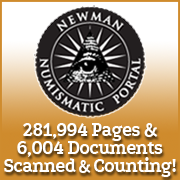
About UsThe Numismatic Bibliomania Society is a non-profit organization devoted to the study and enjoyment of numismatic literature. For more information please see our web site at coinbooks.org SubscriptionsThose wishing to become new E-Sylum subscribers (or wishing to Unsubscribe) can go to the following web page link MembershipThere is a membership application available on the web site Membership Application To join, print the application and return it with your check to the address printed on the application. Membership is only $20 to addresses in the U.S., $25 for First Class mail, and $30 elsewhere. For those without web access, write to: Terry White, Treasurer
AsylumFor Asylum mailing address changes and other membership questions, contact Terry at this email address: terrywhite5475@yahoo.com SubmissionsTo submit items for publication in The E-Sylum, just Reply to this message, or write to the Editor at this address: whomren@gmail.com BUY THE BOOK BEFORE THE COIN |
- WAYNE'S WORDS: THE E-SYLUM JUNE 19, 2016
- NBS EVENTS PLANNED FOR 2016 WORLD'S FAIR OF MONEY
- ASYLUM SUMMER 2016 ISSUE PUBLISHED
- NBS ENVEILS WEB SITE MOBILE REVAMP
- KOLBE & FANNING SALE 142, JUNE 24-25, 2016
- NEW BOOK: GUIDE BOOK OF U.S. PAPER MONEY, 5TH EDITION
- REVIEW: NUMISMATIC BOOKS ON AMAZON’S KINDLE
- DIGITAL ICONOGRAPHIC ATLAS OF NUMISMATICS IN ANTIQUITY
- NEWMAN PORTAL PROCESSES KENNEDY HALF DOLLAR MATERIALS
- MORE ON 1970-S MINT "ERRORS"
- 1964 LINCOLN CENT STRUCK ON A INDIAN 1942 1/4 RUPEE
- MORE ON THE HALL OF FAME MEDALS
- MORE ON THE HALL OF FAME MEDAL ALBUMS
- NOTES FROM E-SYLUM READERS: JUNE 19, 2016
- TOM HIPSCHEN'S BEP BUILDING ENGRAVING
- LEWIS THEODORE BRODSTONE, 1872-1936
- 1849 MORMON GOLD $20 COIN SURFACES
- DUPONT SILVER BICENTENNIAL MEDALS
- GOLD HENRY CLAY U.S. MINT MEDAL OFFERED
- EARLIEST NUMISMATIC ALUMINUM AS A COMMON METAL?
- ST. ELIGIUS BROTHERHOOD MEDAL
- WAYNE'S NUMISMATIC DIARY: JUNE 19, 2016
- SILVER 1904 CARNEGIE HERO MEDAL SOLD
- LENBOROUGH ANGLO SAXON COIN HOARD VALUED
- EMPEROR CONSTANTIUS II MEDALLION USED ON BELT
- PARIS MINT TO MAKE COINS FOR SAUDI ARABIA
- VIDEO DISCUSSES COUNTERFEIT DETERRENCE SYSTEM
- WAS CHURCHILL BANKNOTE MODELED ON KARSH PHOTO?
- QUEEN HONORS POLYMER BANKNOTE PIONEER DAVID SOLOMON
- SWISS 1,000-FRANC NOTE HERE TO STAY
- TAIWAN AUCTIONING SPECIAL SERIAL NUMBER BANKNOTES
- FEATURED WEB PAGE: BELGIAN BANKNOTES AND COINS
Click here to access the complete archive
To comment or submit articles, reply to whomren@gmail.com
WAYNE'S WORDS: THE E-SYLUM JUNE 19, 2016
New subscribers this week include: Matt Campbell. Welcome aboard! We now have 1,982 subscribers. Welcome also to our newest advertiser, Tom Pilitowski's U.S. Rare Coin Investments.
This week we open with NBS events at the upcoming ANA convention, the latest issue of The Asylum, and a new mobile-friendly NBS web site.
Other topics this week include Kolbe & Fanning's Sale #142, a new book on U.S. Paper Money, Kennedy Half materials on the Newman Numismatic Portal, the DuPont bicentennial medals, Henry Clay and Carnegie Hero medals, and polymer banknote co-inventor David Solomon.
To learn more about the Jack Collins Award, mint errors, the W.W.C. Wilson sale, the The Philatelic West, the Star Coin Book Junior, Edmondo Quattrocchi, numismatic tomfoolery, and Mox Nix Nil, read on.
I'm on the road vacationing with my family, so I'll only be online intermittently this week. and may not be able to get everything sent to me into next week's issue. But stay in touch and please do keep sending me your input. It's what makes The E-Sylum great. Have a great week, everyone!
Wayne Homren
Editor, The E-Sylum
NBS EVENTS PLANNED FOR 2016 WORLD'S FAIR OF MONEY
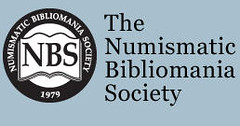 The E-Sylum is brought to you each week by the Numismatic Bibliomania Society. While The E-Sylum is free to all, only
NBS members receive our print publication, The Asylum.
The E-Sylum is brought to you each week by the Numismatic Bibliomania Society. While The E-Sylum is free to all, only
NBS members receive our print publication, The Asylum.
Ably edited by Maria Fanning, the latest issue (Summer 2016) has just been published. See the article elsewhere in this issue for more information.
In this issue NBS President Marc Ricard announces some of the club events planned for this summer's American Numismatic Association World's Fair of Money, to be held August 9-13 in Anaheim, CA. I've already made my travel arrangements and hope to see many of our readers there. -Editor
President’s Message
Marc C. Ricard, NBS President
Dear Friends,
What an exciting time to be a part of Numismatic Literature collecting! With the Newman Portal project in full swing, various mail-bid and auction sales, and many new books becoming available, it gives me great hope for the future of our collecting specialty. We
are also very privileged to enjoy our fine NBS publication, The Asylum, which you hold in your hands right now. This is a benefit of your ongoing membership in our great organization. I encourage all of you to share your copies with non-NBS members and friends, and ask them to join.
Another benefit that the NBS shares with the general collecting public is our annual Symposium, and General Meeting and Auction, that take place at the ANA’s World’s Fair of Money. I am continuing to work within the numismatic community to finalize our speakers for both events, and I encourage your donations of fine numismatic literature to our auction. This is the only non-dues fundraiser that our organization has, and the proceeds continue to be a much needed source of income for our continuing operations. Please contact George Kolbe at gfk@numislit.com or 909-338-6527 to donate your item to the auction.
Please stay tuned to the E-Sylum for more details on our events at the ANA World’s Fair of Money in Anaheim, California, August 2106. Our events are scheduled for Thursday and Friday, August 11 and 12.
It is time to vote for our 2015 Jack Collins Award for best new contributor and Joel J. Orosz Award for best article in last year’s volume of The Asylum, which will be presented in Anaheim. The ballot is inserted in this issue. You may return completed ballots to the address printed on the ballot or vote online at https://www.surveymonkey.com/r/T9F8SG9.
I thank all of you for continuing to encourage everyone in the hobby to “Buy the Book, Before the Coin.”
Best regards,
Marc C. Ricard
President, NBS
For more information on NBS, see:
www.coinbooks.org
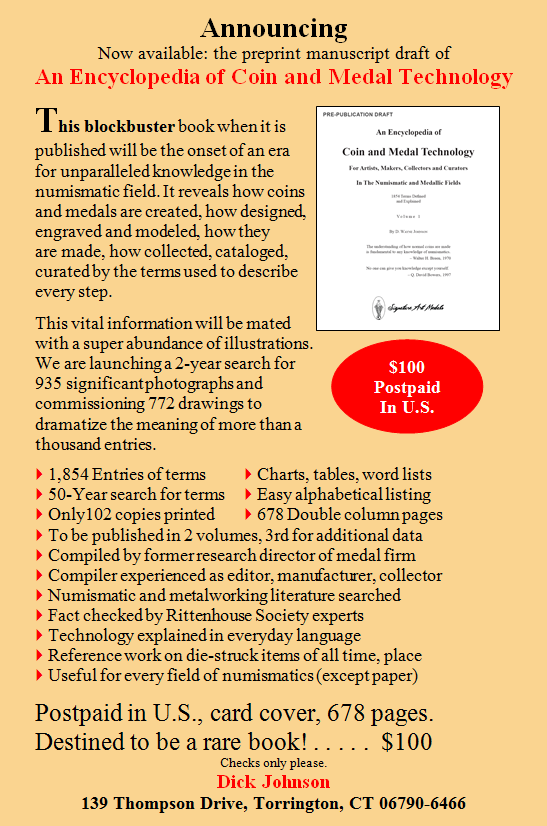
ASYLUM SUMMER 2016 ISSUE PUBLISHED
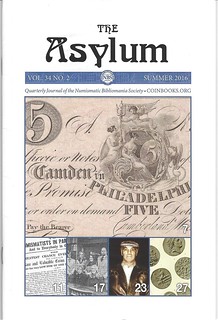 An Early New Jersey Bank History by David D. Gladfelter
An Early New Jersey Bank History by David D. Gladfelter
The John K. Curtis Gamble by Thomas D. Harrison
The Harlan J. Berk Ltd. Numismatic Library by Shanna Berk Schmidt
Reminiscences of a Numismatic Bookseller 5: Unlikely Coincidences Connected to a Buying Trip That Never Was by George F. Kolbe
Off the Shelf: The Earliest Auction Catalogues Photographically Illustrating Ancient Coins by David F. Fanning
To join NBS or renew your annual membership, see:
www.coinbooks.org/about/membership.html
NBS ENVEILS WEB SITE MOBILE REVAMP
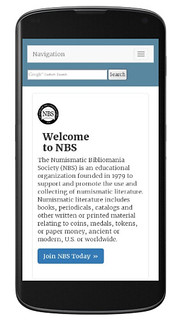 At the Numismatic Bibliomania Society board meeting last year, the board authorized funding to hire a web designer to upgrade our web site
for the mobile age. It's been a slow process while a team of volunteers (myself, Board member Elizabeth Hahn Benge, Asylum editor Maria
Fanning and webmaster Bruce Perdue) worked with the paid part-time designer. Bruce did the bulk of the work once the basic design was ironed out.
Thanks!!
At the Numismatic Bibliomania Society board meeting last year, the board authorized funding to hire a web designer to upgrade our web site
for the mobile age. It's been a slow process while a team of volunteers (myself, Board member Elizabeth Hahn Benge, Asylum editor Maria
Fanning and webmaster Bruce Perdue) worked with the paid part-time designer. Bruce did the bulk of the work once the basic design was ironed out.
Thanks!!
The new site was quietly rolled out last week. Here are some screenshots. Please have a look, especially if you use a mobile device such as a table or smartphone. The pages are responsive and should display reasonably well on any size device. Let us know if you have any concerns or problems. -Editor
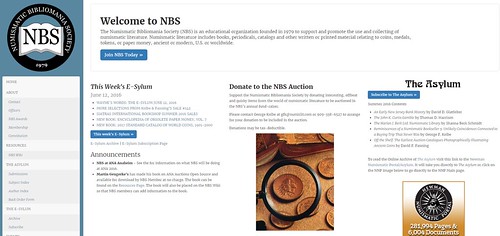
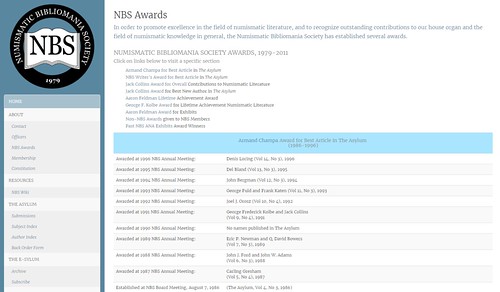
To visit the new NBS web site, see:
www.coinbooks.org
https://www.google.com/webmasters/tools/mobile-friendly/
-Editor
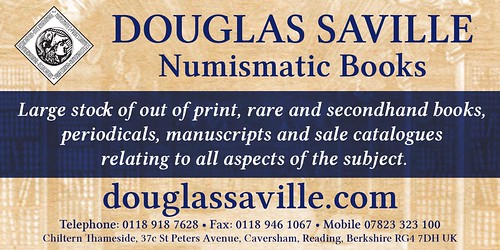
KOLBE & FANNING SALE 142, JUNE 24-25, 2016
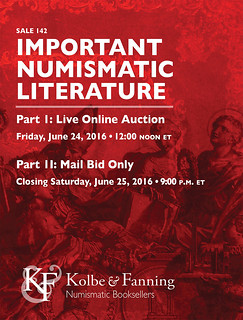 Kolbe & Fanning wish to remind everyone that our 142nd sale of important numismatic literature will be held this Friday and Saturday, June
24 and 25, 2016.
Kolbe & Fanning wish to remind everyone that our 142nd sale of important numismatic literature will be held this Friday and Saturday, June
24 and 25, 2016.
The sale is arranged in two parts:
--Part One, featuring 380 lots, will be conducted as a live online sale on Friday, June 24. Bidders may participate in this part of the sale in a variety of ways: in advance via mail, phone, fax or email--or on the day of the sale through our live bidding platform at auction.numislit.com. Register in advance, browse lots and place bids at your leisure: all lots in the first part are illustrated in the online catalogue. Live bidding will commence at noon eastern time on June 24. Any absentee bids not placed online must be received by Thursday, June 23 to give us time to process them. Bids may be placed with David Fanning by email to df@numislit.com or by phone at (614) 256-8915 or fax at (614) 414-0860 through Thursday.
--Part Two, featuring over 600 lots, will be conducted as a traditional mail-bid sale with no online component. This second part of the sale will close at 9:00 pm eastern time on Saturday, June 25. Bids may be placed via mail, phone, fax or email up until that time; bids will be treated as limits and reduced as competition dictates.
Printed catalogues have been mailed to established clients; a PDF of the catalogue has been posted to the main numislit.com website for those who prefer to read online. In addition, prospective bidders are able to access the live online catalogue and register to bid in Part One of the sale through auction.numislit.com. We strongly recommend that bidders register in advance in order to avoid any last-minute difficulties. We are looking forward to the sale and hope you are as well. Thank you in advance for your participation.
Kolbe & Fanning Numismatic Booksellers LLC is a licensed and bonded auction firm in the State of Ohio. For more information, please see the Kolbe & Fanning website at numislit.com or email David Fanning at df@numislit.com.
To read the earlier E-Sylum articles, see:
KOLBE & FANNING SALE 142, JUNE 24-25, 2016
(www.coinbooks.org/esylum_v19n22a02.html)
SELECTIONS FROM Kolbe & Fanning’S SALE #142
(www.coinbooks.org/esylum_v19n23a02.html)
MORE SELECTIONS FROM Kolbe & Fanning’S SALE #142
(www.coinbooks.org/esylum_v19n24a02.html)
THE BOOK BAZARRE
NEW BOOK: GUIDE BOOK OF U.S. PAPER MONEY, 5TH EDITION
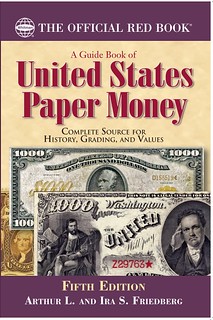 The updated and revised fifth edition of the Guide Book of United States Paper Money will be available in late July, with its
official debut at the American Numismatic Association World’s Fair of Money in Anaheim on August 9, 2016. The new book, a history and price guide on
the paper currency of the United States, is by award-winning numismatists Arthur and Ira Friedberg. The 416-page guide is printed in full color with
hundreds of high-resolution images. It retails for $24.95 and is available online (including at Whitman.com) and from booksellers and hobby retailers
nationwide.
The updated and revised fifth edition of the Guide Book of United States Paper Money will be available in late July, with its
official debut at the American Numismatic Association World’s Fair of Money in Anaheim on August 9, 2016. The new book, a history and price guide on
the paper currency of the United States, is by award-winning numismatists Arthur and Ira Friedberg. The 416-page guide is printed in full color with
hundreds of high-resolution images. It retails for $24.95 and is available online (including at Whitman.com) and from booksellers and hobby retailers
nationwide.
The Guide Book of United States Paper Money describes in detail thousands of federally issued notes, including valuable rarities like the Demand Notes of 1861 as well as common currency found in our wallets today. The historical narrative explores topics such as the $2 bill; American money in the Civil War; the Bureau of Engraving and Printing; how cash is designed, printed, and distributed; how to collect, store, and care for U.S. paper money; grading standards for currency; and the many kinds of U.S. paper money printed from the 1860s to today. The authors cover recent developments in the hobby, including the latest Federal Reserve Notes. They discuss the Treasury Department’s upcoming redesign of the $20 bill using a portrait of abolitionist Harriet Tubman (as well as plans to include images of women on the $5 and $10 bills).
On the market side, the book combines the standard Friedberg cataloging system with retail values in multiple grades for each note.
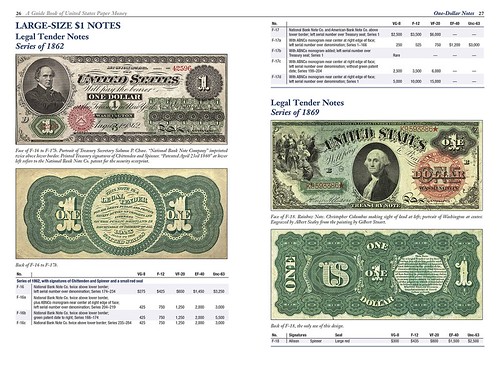
“Popular interest in U.S. paper money has spiked in recent months,” said Whitman publisher Dennis Tucker. “Mainstream articles have put America’s currency on front pages nationwide and on home pages around the Internet. With this increased attention, longtime hobbyists and non-collectors alike are looking for an authoritative price guide and accurate information.”
The first edition of the Guide Book of United States Paper Money was published in 2005, with updated editions released in 2007, 2010, and 2014.
Authors Arthur and Ira Friedberg are well known in the numismatic world. They have been professional numismatists for more than 30 years. Both joined their father’s family firm, The Coin & Currency Institute, after college. Since then they have established themselves as award-winning authors, coin dealers, researchers, and numismatic consultants to numerous governments and organizations.
The Guide Book of United States Paper Money covers notes from $1 to $10,000 face value; Fractional Currency; Treasury notes of the War of 1812; encased postage stamps; error notes; signatures on U.S. currency; uncut sheets; and other hobby topics. The book includes a glossary and a bibliography for further research.
A Guide Book of United States Paper Money, 5th edition · By Arthur L. and Ira S. Friedberg; introduction by David L. Ganz · ISBN 0794844103· Full color, illustrated · 6 x 9 inches, softcover, 416 pages ·Retail $24.95
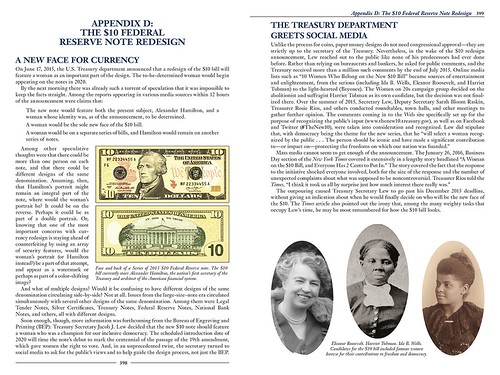
For more information, or to preorder, see:
A Guide Book of
United States Paper Money, 5th Edition
(www.whitman.com/store/Inventory/Detail/A-Guide-Book-of-United-States-Paper-Money-5th-Edition+0794844103)
REVIEW: NUMISMATIC BOOKS ON AMAZON’S KINDLE
Amazon’s Kindle Publishing has opened the floodgates for passionate writers to publish their stories and knowledge to the world like never before. Gone are the barriers to entry such as agents, editing teams, marketing advisors, and gauging the general marketability of the author. What I have noticed though – at least in numismatics – is that it is allowing a lot of charlatans and internet marketers to make a quick buck publishing about our hobby. The lasting impact though is a market flooded with crap, as well as disillusioned and vulnerable customers.
My passion for this topic is immense. I have been writing several books for years now, waiting to publish in order to perfect my research, in addition to correcting style and errors. I am not trying to be a perfectionist, but close to it. My work will be associated with my name and I am vested in ensuring it makes a great impression. Hopefully, this summer I will finally have one of them published on Amazon Kindle.
Before I hit publish though I did some research on the market for numismatic books on Amazon. The usual suspects are there. Most of the great titles we know and love from the authors who are experts in their respective series. Along with those experts are hundreds of half-ass and inaccurate “books” floating around geared toward appealing to a reader’s desire to make a quick buck in coins.
It actually compelled me to leave my first damning review of a Kindle book today. It was not prideful. It was an undeniable urge. Upon seeing a recommended book and never hearing of the author I had to research them and see how and why they were receiving so many positive reviews and in some cases outselling Whitman titles in the same area of numismatics.
My research resulted in nothing. Their other “books” drew skepticism as they were hardly related to coins, instead favoring various ways to make a quick buck online or discussing various ways to take advantage of arbitrage. Still interested in why the positive reviews where there I decided to try the introduction to the book which is a complimentary service via Amazon Kindle.
What I found upset my stomach. At first I had a strong opinion that the “book” was completely outsourced from Asia. The sentences were fluffy and made overarching statements like “since the beginning of time” and “the history of coins is important.” Repetition filled their page count. Where was the meat of this product that I could learn, grow, and be entertained by?
I would never find the meat, just a bunch of fat. The introduction was full of misunderstandings and inaccuracies that average numismatist would have thrown their arms up about. What I found most disturbing was the blatant disregard for numismatists’ copyright. I saw numerous images in the introduction owned by other numismatists, friends of mine, who did not consent to use of their work. I can only imagine how many are filled in all of his thin offerings.
So I left a negative review and I am that much more compelled to write a better book than I had planned. Obviously I want to protect my own brand and make a living for myself, but I also want to have a positive legacy on this hobby. Collector’s everywhere deserve it!
I ask you to please leave honest reviews for these self published books in whatever category you find them. There is nothing wrong with an independent author. However there is everything wrong with someone producing lazy content that is inaccurate, with no credentials, in order to make a quick buck at the expense of others. Keep the review civil and constructive. It has a much better chance of sticking around and making a positive impact on everyone.
If you find a great self published numismatic book please draw my attention to it. I would be happy to review and promote it here and with my friends and clients. And if you find a self published numismatic book that is honest, trying to make a positive impact, that just needs a little help let me know. I would be happy to help a fellow numismatic author out.
To read the complete article, see:
The Unfortunate Side of Self
Published Numismatic Books on Amazon’s Kindle
(http://scottmhopkins.com/the-unfortunate-side-of-self-published-numismatic-books-on-amazons-kindle/)
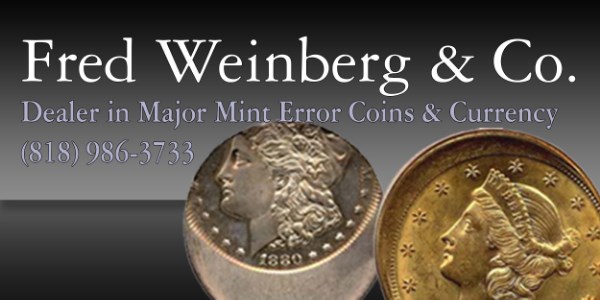
DIGITAL ICONOGRAPHIC ATLAS OF NUMISMATICS IN ANTIQUITY
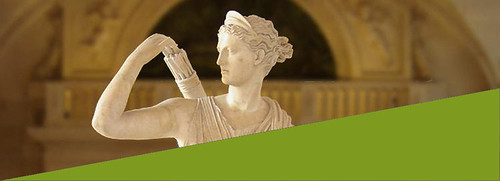
Nowadays, in the field of science of antiquity, there are a lot of digital archives and web applications that allow to display ancient entities and artifacts on digital maps. Entities may include, e.g., gods, abstract personifications, historical personages, etc. Artifacts may include coins, weapons, architecture, etc. In particular, ancient coins represent also out-and-out documents that need to be properly studied and analyzed. From the point of view of numismatics, there are not so many web applications enabling researchers to perform an in-depth analysis of the coin iconography.
Some web solutions make it possible to retrieve data and display the location of ancient mints and coin finds on digital maps, but they do not present codified and detailed descriptions of coin iconographies. The Digital Iconographic Atlas of Numismatics in Antiquity (DIANA) aims to fulfill such a gap. With DIANA it is possible to study both “diachrony” and "diatopy" with a new innovative approach starting from ancient coins. In fact, DIANA is a web application that provides an in-depth analysis of ancient coins specifically considering the details of their iconography, chronology, and the geographical location of their mints. Thanks to this approach, DIANA allows a more detailed study of coin iconographies through time and space than other existing web applications.
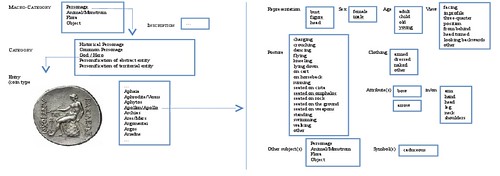
It is a web platform that allows researchers to analyze the “coin iconography” according to time and space through digital maps. In order to build digital maps, the system uses the Cloud Computing Google Maps Platform as a Service (PaaS). A mint can be searched on DIANA considering a target coin iconography through a web form. By means of AJAX requests, data are retrieved on the DIANA's digital archive and they are sent in XML format to the user's web browser. After that, the web browser processes the received data and it forwards a second AJAX request to the Google Map PaaS that returns a digital map displaying the mint and ancient coins.
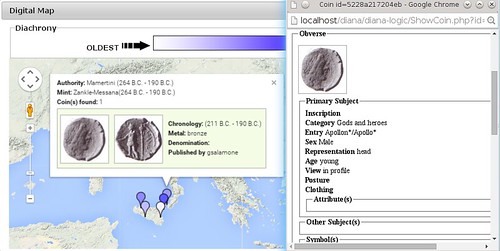
To visit the DIANA site, see:
http://ww2.unime.it/diana/
NEWMAN PORTAL PROCESSES KENNEDY HALF DOLLAR MATERIALS
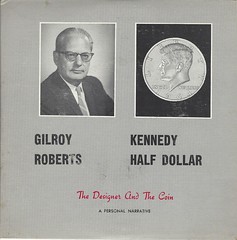
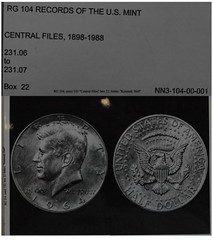
Three interesting items, all from different sources, recently passed through the Newman Portal queue. The first is an audio recording from the Wayne Homren library, c. 1965, featuring Gilroy Roberts (designer of the obverse) discussing artistic considerations in the design of the coin. The development of the Kennedy half dollar demonstrates that bureaucracy can move quite quickly when it wants to, and Roberts’ presentation conveys the urgency of the time.
Separately, a copy of the congressional report of December 12, 1963, from the Dan Hamelberg library, reveals the tidbit that the Mint estimated the conversion costs from the Franklin to the Kennedy half dollar to be less than $1,000. This is a staggeringly low number, and the reader is referred to the report for additional detail.
Finally, Roger Burdette contributed his scans from the National Archives, record group 104, entry UD, box 22, related to the Kennedy half dollar. The context of this archive is unclear but appears to be Mint Director Eva Adams’ personal working files. This group includes photographs, press releases, congressional record excerpts and most notably a letter to Adams containing the recollections of Roberts and Frank Gasparro (designer of the reverse). Not surprisingly, the Roberts text is the same that one hears on the audio recording, noted above.
Link to Gilroy Roberts audio recording (part 1):
https://archive.org/details/GilroyRobertsPart1
Link to Gilroy Roberts audio recording (part 2):
https://archive.org/details/GilroyRobertsPart2
Link to Congressional report on the Kennedy half dollar:
https://nnp.wustl.edu/library/book/517271
Link to U.S. Mint archive on the Kennedy half dollar:
https://nnp.wustl.edu/library/book/517293
THE BOOK BAZARRE
MORE ON 1970-S MINT "ERRORS"
Under the subject line "How soon they forget ..." Ken Barr writes:
From "The Winthrop Collection" by American Auction Association - Bowers and Ruddy Galleries, Inc., held on September 19 - 20, 1975:
Especially of interest to error collectors will be lot 1020, a unique 1970-S Washington quarter proof struck over a 1900 Barber quarter, taken from a 1970-S proof set, which realized $3,000.
Apparently there were multiple "pieces de caprice" (to steal a term from Don Taxay) produced in 1970. I suspect that the "midnight shift" employee who struck these intended to sneak them out of the mint, but was unable to do so, and simply dropped them in with the normal proofs. If I recall correctly, this Barber overstrike was discovered by a collector in a set received directly from the Mint and reported it to Coin World. It's also listed in Breen's Encyclopedia p. 370 with a reference to a picture in the Breen Proof book 1977 p. 231.
1970-S Proof 25C Struck on a Silver Barber 25C NGC PF 65 (www.ebay.com/itm/like/172238313445)
1970-S Proof Washington Quarter Struck on 1941 Canada Quarter NGC PF 65 (www.ebay.com/itm/1970-S-Proof-Washington-Quarter-Struck-on-1941-Canada-Quarter-NGC-PF-65-/182165386583)
Gary Beals of Segovia, Spain writes:
That U.S. quarter over a Canadian quarter may be an example of what is called ‘Mint sport’ in Dick Johnson’s terrific numismatic encyclopedia. The term refers to an odd coined piece created by mint workers for their amusement. It can be a curiosity of various amounts of oddity and uncertainty. Mint error? Sure it is a mint error. The mint made a big error letting a couple of clowns fool around on the presses. Gotta get back to frisking those guys better. Is it worth $35,000? Not bloody likely. But if it is, I will sell this one for 1/10th that sum.
No, they are not mint errors. Knowing mint technology can determine if it is a true mint error or someone fooling around with the equipment. Such pieces can originate any phase of minting, or involve several steps.
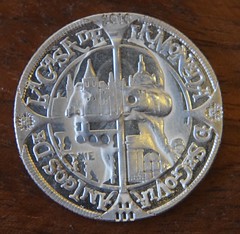 As an example of how easily such pieces can be cranked out, here is a photo of a 1940s U.S quarter serving as the host coin for a 2010
Segovia, Spain commemorative medal. Here in Segovia a hand-hammered coin press is used to allow people to strike their own medals under supervision
using a heavy sledge hammer. An insider and I had access to it for an hour or so. It is interesting how the profile of George Washington blends with
the details of the small medal of which only three exist.
As an example of how easily such pieces can be cranked out, here is a photo of a 1940s U.S quarter serving as the host coin for a 2010
Segovia, Spain commemorative medal. Here in Segovia a hand-hammered coin press is used to allow people to strike their own medals under supervision
using a heavy sledge hammer. An insider and I had access to it for an hour or so. It is interesting how the profile of George Washington blends with
the details of the small medal of which only three exist.
As a test of annealed coin silver (heat softened with a blow torch), I took a few U.S. quarters in VG-VF condition from the 1940s to the press and we hammered away on them. The result was that the dull finish, clean quarters took on nearly a proof-like sheen from sledge-hammer impact on the dies in places. The U.S. 25 cent pieces struck up quite well during this bit of numismatic testing and tomfoolery.
To read the earlier E-Sylum article, see:
1970-S QUARTER STRUCK ON 1941 CANADA QUARTER
(www.coinbooks.org/esylum_v19n24a17.html)
1964 LINCOLN CENT STRUCK ON A INDIAN 1942 1/4 RUPEE
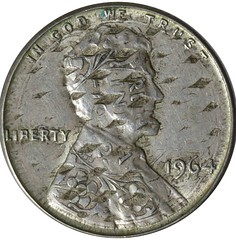
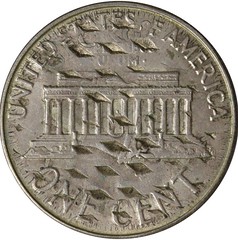
NGC Graders share an intriguing and visually dramatic error coin that was recently submitted for certification.
Among the various types of error coins that exist, one of the most coveted are coins overstruck on foreign coins from other countries. At a glance, these coins look so unusual or different from typical coins, they immediately invite investigation. Second, they prompt an interesting series of follow-up questions: how did these come to be made; were they made deliberately; and why?
Recently submitted to NGC was one of these very curious double-denomination errors: a 1964 Lincoln Cent struck on a cancelled India 1942 ¼ Rupee. In .500 fine silver, its color immediately signals it is something different. Odd diamond cross-hatching, the results of cancellation, has overlaid a textured pattern to both obverse and reverse. Closer examination identifies the undertype. Clearly discernible running vertically across Lincoln’s profile bust are the words, in four lines, "¼ / RUPEE / INDIA / - 1942 -". This undertype, an India ¼ Rupee, KM-546 is a two-year design type struck in Calcutta, which was cancelled prior to being overstruck with Lincoln Cent dies.
Fortunately, we do know a little of its provenance. It was submitted to NGC by coin dealer Gregory Field, a partner with New England Rarities, who represents the family of the original owner. He relayed to NGC that the owner removed the coin from circulation himself in 1964. It had been used in purchase at a Brooklyn Heights, NY delicatessen he owned. Being a casual collector, the owner began to look more closely at the change drawer in his restaurant after it was announced silver coinage would soon be removed from circulation. The coin has remained with the family since then, now offering it for sale by Field on the website nerarities.com.
The coin may be known to some in the numismatic community as it was first sent to a prominent numismatist for authentication in 1976. At least one Cent struck on an uncancelled ¼ Rupee is also known. It’s natural to assume that such coins were made deliberately by a Mint employee or for the favor of an important visitor to the Mint, wanting an oddity to sell for profit or a special keepsake. This may not be the case here.
Adding to the evidence that these coins were made by mistake are two considerations. First, the coin was found in circulation in 1964, suggesting that it promptly entered commerce and wasn’t held back as a momento or to be sold. Second, a 1964-D Jefferson Nickel struck on a cancelled India 1940 ¼ Rupee is also known. This means that the same circumstance that occurred at the Philadelphia Mint, where this Lincoln Cent was struck, was repeated at the Denver Mint. That may well rule out the theory that a single Mint employee or someone with special access to the minting process was involved. For an unknown reason, silver India ¼ rupees were intermixed with cent planchets at Philadelphia and nickel planchets at Denver!
Similar errors have occurred in the past. The US Mint struck coins for over 40 foreign countries from 1876 into the 1980s. Occasionally these foreign coins got mixed with regular US coinage planchets, creating popular double-denomination error coins. But the US Mint has never produced coins for India, adding to the intrigue of this piece.
To read the complete article, see:
From the Grading Room: 1964 Lincoln Cent Struck On a Coin of India
(www.ngccoin.com/news/article/5364/)
THE BOOK BAZARRE
MORE ON THE HALL OF FAME MEDALS
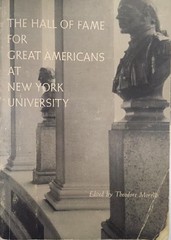 Regarding the designers of the Hall of Fame for Great Americans medals, Rich Jewell writes:
Regarding the designers of the Hall of Fame for Great Americans medals, Rich Jewell writes:
Harry Waterson was the only one(so far) who discovered the additional sculptor/engraver. Edmondo Quattrocchi did the George Westinghouse sculpture & medal (1955 & 1963).
Dick Johnson adds:
Rich Jewell noted some interesting facts about the Hall of Fame series in last week's E-Sylum. There is a reason why two artists did two medals for the series: the Mary Lyons and Gilbert Stewart medals were assigned to Laura Gardin Fraser, who designed and started the models but died before they were finished. Art Director Julius Lauth at Medallic Art Co. selected another artist to finish the models. He choose Karl Gruppe because his style was similar to that of Laura Gardin’s.
I wrote a brief history of the series for Joseph Levine for one of his auction catalogs. This can be found on the Newman Portal. Presidential Coin & Antique Auction #65, March 20, 1999, page 101, lot 543. The lot contained 95 medals in bronze 3-inch size, which sold for $1,800.
A SET OF NEW YORK UNIVERSITY HALE OF FAME MEDALS, 1963-1975. The Hall of Fame medals have been described by D. Wayne Johnson as, “One of the most popular portrait series of medals in the world. The Hall of Fame series honors the most famous Americans chosen by a select group of judges and sponsored by New York University. The first election was held in 1 896, and elections were held every four years thereafter.”
"Bronze statues of the honorees were installed along the col- onnade at the University’s Morningside Heights campus. In 1962 a coalition was formed to sponsor and market fine art medals to honor these same famous Americans. The coalition consisted of New York University, the owner of the Hall of Fame, the National Sculpture Society, who would furnish at art committee, the Medallic Art Company, which would manufacture the medals, and the Coin and Currency Institute which would market the medals.”
Over the next 1 3 years, 96 medals were created by 42 sculptors, predominantly members of the National Sculpture Society/ While the design was left to the artist, each submission had to pass the approval of the Art Committee composed of at least five of their sculptural peers. Rules for the medal design were simple. It had to be a portrait on the obverse, significant scene from that subject’s accomplishment for the reverse, and the full lettering on either side: Hall of Fame for Great Americans at New York University.”
"Medals were struck in two sizes. A large 3 inch (76mm) size in bronze only, and a small 1 3/4 inch (44mm) size in bronze and silver. The silver was serially numbered.”
“In the 1980s New York University sold their Morningside Campus to City College of New York. The status of the Hall of Fame was in limbo for awhile. Since that time no elections have been held, no new statues erected or medals issued. However, visitors to New York City can still travel to Morningside Heights and walk the Colonnade, viewing the magnificent statues overlooking the Hudson River. Or they can own a set of a fine art medals created by some of the most talented medalists of the 20th century.” The set of medals offered here are all of the 76mm size and are all in uncirculated condition. Included are 94 of the 96 medals in the series.
To read the Presidential auction catalog, see:
Hard Times Sale
(https://nnp.wustl.edu/library/auctionlots?AucCoId=511514&AuctionId=511917)
To read the earlier E-Sylum article, see:
MORE ON HALL OF FAME FOR GREAT AMERICANS MEDALS
(www.coinbooks.org/esylum_v19n24a14.html)
MORE ON THE HALL OF FAME MEDAL ALBUMS
David T. Alexander writes:
I was delighted at the interest expressed in the Hall of Fame for Great Americans medal series (HOF) by brothers Lange and Jewell in The E-Sylum. The HOF albums are indeed fascinating and little known: 10 3/4 x 8 3/8 inches, shiny black, spines silver-stamped THE HALL OF FAME FOR GREAT AMERICANS, in tiny letters at base Coin &/ Currency/ Institute,/ Inc.. N.Y. 1. Front covers bear a silver square enclosing THE HALL OF FAME/ FOR/ GREAT AMERICANS/ AT/ NEW YORK/ UNIVERSITY with stylized bust and pedestal at right.
Inside are removable black-flocked pages with die-cut holes which seldom fit the medals exactly. After striking, the medals were lathe-trimmed to create wide variances in actual diameter. Medals had to be jammed into the openings by main force or else flopped in easily, only to fall out and jumble-jingle to the bottom. The weight of the 44mm silver or bronze medals frequently caused the album covers to detach fairly quickly.
The full story of HOF has yet to be published, though a completed book-length manuscript exists . This contains a vast amount of material: history of HOF, how many medalists actually took part; how the series was governed; how Laura Gardin Fraser's death necessitated completion of her work in her inimitable style by another leading medallic sculptor; biographies of the artists.
The story is fascinating and is ready for publication should a suitable publisher come forward. For more information, contact David Thomason Alexander at Alexander.numismatics@gmail.com.
I read the article in last week's E-Sylum on the Hall of Fame for Great Americans medals. I have a number of these albums which I bought on eBay a few years ago. Each album has one page with 12 holes for 1-3/4" medals. There is no lettering for individual medals in the series-- that is, each album is the same.
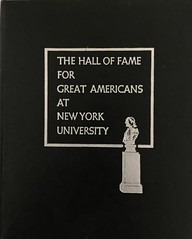 The albums are about 10-1/2' x 8-1/2" x 1" in the shape of a shallow box. The front cover opens like a book. The page to hold
the medal is not attached to the album, but there is a ribbon to help remove the page and see the back side of the medals. Since there are only 12
holes for medals in each album, it would require 8 albums for either the full set of 1-3/4" bronze or silver medals. I have never seen an album
for the larger 3" bronze medals. These medals are probably too large and heavy for an album.
The albums are about 10-1/2' x 8-1/2" x 1" in the shape of a shallow box. The front cover opens like a book. The page to hold
the medal is not attached to the album, but there is a ribbon to help remove the page and see the back side of the medals. Since there are only 12
holes for medals in each album, it would require 8 albums for either the full set of 1-3/4" bronze or silver medals. I have never seen an album
for the larger 3" bronze medals. These medals are probably too large and heavy for an album.
My experience is that the albums don't function very well. The medals are relatively heavy and the hole tolerances are such that the medals often fall out of the album. I would call these large folders instead of albums. There are no slides to hold the medals in place.
The cover page of these albums is nice. I used a couple of these cover pages from albums in bad shape as a cover page in 3-ring binders where I store my medals.
I have several of these albums in nice shape. If David Lange's is interested in an album for his collection, he can contact me and I will be happy to send him one.
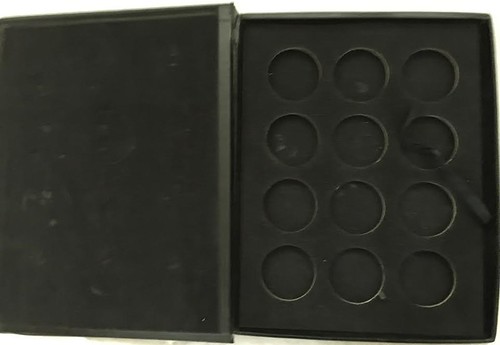
Dave Lange adds:
To read the earlier E-Sylum article, see:
MORE ON HALL OF FAME FOR GREAT AMERICANS MEDALS
(www.coinbooks.org/esylum_v19n24a14.html)

NOTES FROM E-SYLUM READERS: JUNE 19, 2016
W.W.C. Wilson Sale Article
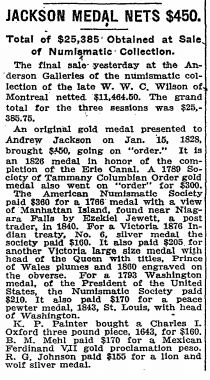 Harry Waterson writes:
Harry Waterson writes:
I was looking through the New York Times for information about a medal issued by Hugo Riesenfeld in 1925 and the attached article turned up. It was not what I was looking for but it might be of interest to one or more of your readers.
The Pepys library at Cambridge
Len Augsburger writes:
Regarding book chopping, I am reminded of the Pepys library at Cambridge. Pepys wanted to have all his books equally matched in height on the shelf. So he built short boxes to place underneath the smaller books. The library as he built it has survived intact for 300 years. The Pepys diaries written during English Civil War are among the most important historical documents for the period. We can all be grateful that Pepys made his books match by adding boxes rather than chopping the large ones!
To read the earlier E-Sylum article, see:
DECORATING A ROOM WITH A BOOK TSUNAMI
(www.coinbooks.org/esylum_v19n24a31.html)
Phung and Howard Daniel at Memphis 2016
John and Nancy Wilson write:
Here's a photo of Phung and Howard Daniel representing the International Bank Note Society and Numismatic Bibliomania Society at the 40th International Paper Money Show in Memphis, TN on June 2 - 5, 2016.
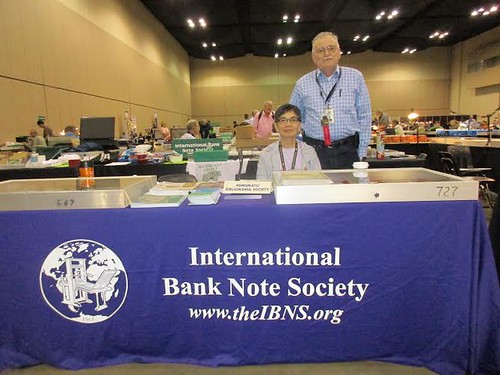
The Burpee Rupee
Dick Johnson writes:
If the Burpee Seed Company issued their own paper money in repee denominations would a member of their collectors organization be called a Burpee Rupee Groupe?
To read the earlier E-Sylum article, see:
NOTES FROM E-SYLUM READERS: JUNE 12, 2016 : Printing the Zero-Rupee Note
(www.coinbooks.org/esylum_v19n24a10.html)
TOM HIPSCHEN'S BEP BUILDING ENGRAVING
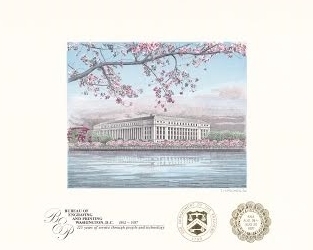 As mentioned in last week's issue, Tom Hipschen, designer of the Harpers Ferry National Historic Site quarter dollar, formerly worked
for the Bureau of Engraving and Printing as a picture engraver. Here’s a scan of Tom’s 1987 signed engraving of the BEP building at cherry blossom
time, on a souvenir card done for the Bureau’s 125th anniversary.
As mentioned in last week's issue, Tom Hipschen, designer of the Harpers Ferry National Historic Site quarter dollar, formerly worked
for the Bureau of Engraving and Printing as a picture engraver. Here’s a scan of Tom’s 1987 signed engraving of the BEP building at cherry blossom
time, on a souvenir card done for the Bureau’s 125th anniversary.
There are several varieties of this card – this particular one was made for the American Numismatic Association’s annual convention, August 26-30, 1987, in Atlanta. The view is similar to that on an earlier engraving of the BEP building that appeared in the BEP centennial history published by the U. S. Government Printing Office in 1962. To see Tom’s work on U. S. currency, look at the portraits and the building vignettes on the $20, $50 and $100 series 1996-1999 Federal Reserve notes and Lincoln Memorial vignette on back of the $5 note. These vignettes are credited to Hipschen by Mark Tomasko in The Feel of Steel (Newtown, Pa., Bird and Bull Press, 1999), 68. Great to see Tom’s work on both our coins and our currency.
To read the earlier E-Sylum article, see:
HARPERS FERRY QUARTER LAUNCHED (www.coinbooks.org/esylum_v19n24a25.html)
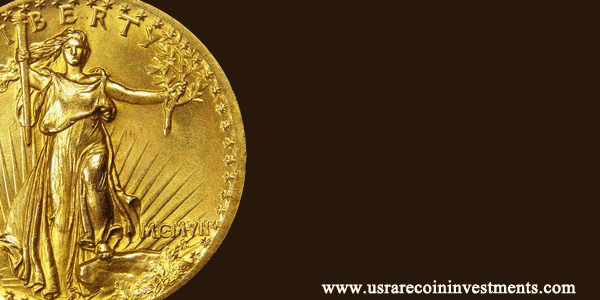
LEWIS THEODORE BRODSTONE, 1872-1936
Lewis Theodore Brodstone, July 20, 1872-1936, born in Monroe, Wisconsin son of Norwegian parents, Hans Olai Theodore Brodstone (1846-1881) and Mathilde Emelie Brodstone (1847-1924). His sister is Evaline Brodstone, also known as Lady Vestey (1875-1941).
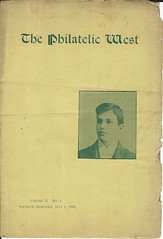 In 1885 he lived with his mother and sister in Beaver, Nuckolls County, Nebraska.
In 1885 he lived with his mother and sister in Beaver, Nuckolls County, Nebraska.
He worked for the Overland Limited, an electric lighted train on the Chicago Union Pacific & Northwestern Line.
1896 Brodstone and Wilkinson published The Philatelic West, Superior Nebraska.
In 1896 he held the Nebraska state record for cycling two years in a row. In 1895 at 9,451 miles and in 1896 with 12,028 miles.
In September 1897 at the sixth annual Convention of the Nebraska Philatelic Society Brodstone served as the secretary-treasurer.
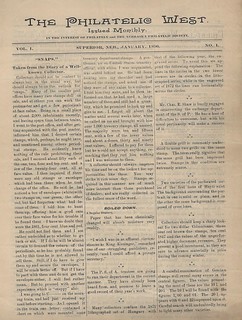 He changed the title of his magazine in 1898 to The Philatelic West and Camera News (1898-1907)
He changed the title of his magazine in 1898 to The Philatelic West and Camera News (1898-1907)
He changed the title of his magazine in 1907 to Philatelic West and Collectors' World (1907-1924)
He joined the ANA in 1908 and is member no. 1118. He collected Nebraska Broken Bank bills and paper money.
In 1913 he donated a Centennial of Independence of the Netherlands medal to the Rochester Numismatic Association (RNA)
In July 1919 he visited the Chicago Coin Club.
In March 1919 his lifelong friend and editor of Nebraska History and Record of Pioneer Days, Addison E. Sheldon, wrote about Brodstone and his amazing magazine :
"L. T. Brodstone of Superior is a genius. No one can read a letter he writes, but he prints the most wonderful, successful, magazine in Nebraska--the Philatelic West. It is one organ of collectors and hobby riders. It circulates all over the world. Its advertising columns are a gold mine. It tells all about the rare coins, stamps, weapons, implements, relics. It is a great popular lecturer on human history for no one can be a "bug" collector without becoming a student of history. From the latest issue we glean that one can now buy World War shrapnel for $4 each; German helmets, $3.00, French and German shell cases, 85 cents, German gas mask $2.50 and war currency at any price you please."
He died of post operative complications at Rochester, Olmstead County, Minnesota on November 10, 1936. His sister Lady Vestey donated a park to Superior, Nebraska as a memorial to her brother Lewis.

Nebraska State Journal, Sunday, July 16, 1939, page 26
In July 1939 Lady Vestey donated 400 paper money specimens to the Nebraska State Historical Society that belonged to her late brother Lewis.
Lady Vestey died in a bombing at London on May 23, 1941.
The largest hoard of Philatelic Literature ever assembled was that of William Reynolds Ricketts (1869-1956). Ricketts was inducted into the Philatelic Society Hall of Fame in 1988 for his many years creating an index to all philatelic literature. Among the hundreds of boxes of books and periodicals was a vast hoard of The Philatelic West. The hoards compiled by Ricketts were purchased by George Atkins, an insurance agent, and philatelist living near Durham, North Carolina. Atkins sold the vast hoards at Eden, North Carolina.
John N. Lupia purchased all of The Philatelic West except for a few copies purchased by the American Philatelic Society (APS) for the American Philatelic Research Library (APRL). The Lupia Numismatic Library now has over 1,500 copies of The Philatelic West making it the largest known hoard of that title ever. The NumismaticMall.Com Book Store will be selling a near complete set, various complete volumes and issues. Please visit the Book Store at this website. Or, write john@numismaticmall.com .
To read the complete article, see:
BRODSTONE, LEWIS THEODORE
(https://sites.google.com/a/numismaticmall.com/www/numismaticmall-com/brodstone-lewis-theodore)
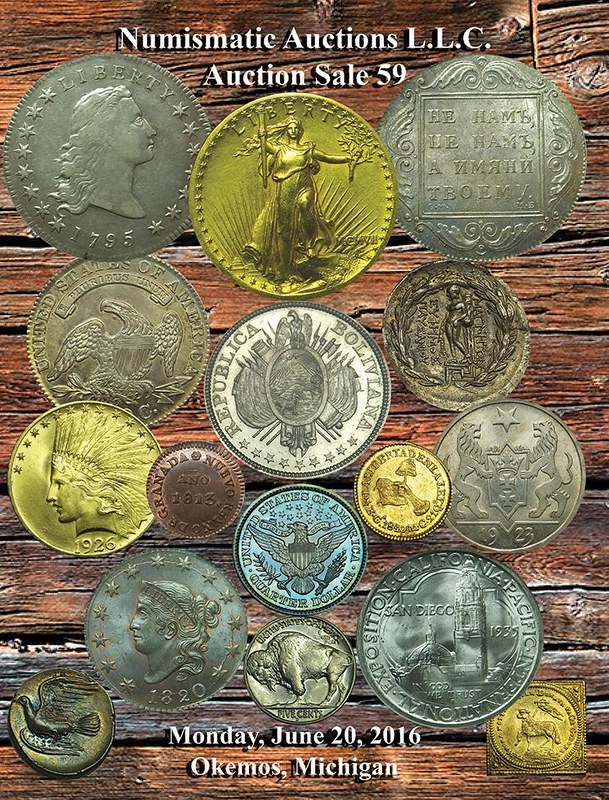
1849 MORMON GOLD $20 COIN SURFACES
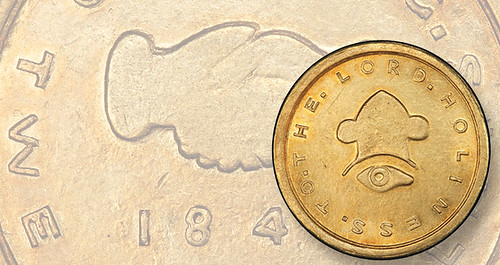
To read the complete article, see:
1849 Mormon gold $20 coin
surfaces after half century in storage
(www.coinworld.com/news/us-coins/2016/06/mormon-gold-coin-surfaces-from-half-century-in-box.html)
DUPONT SILVER BICENTENNIAL MEDALS
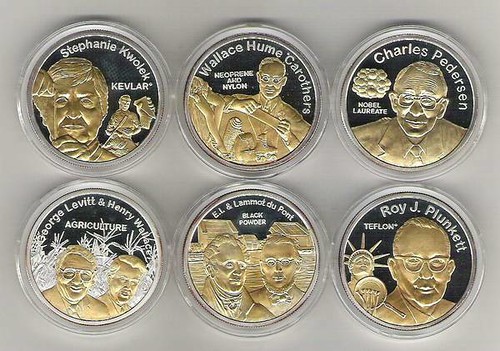
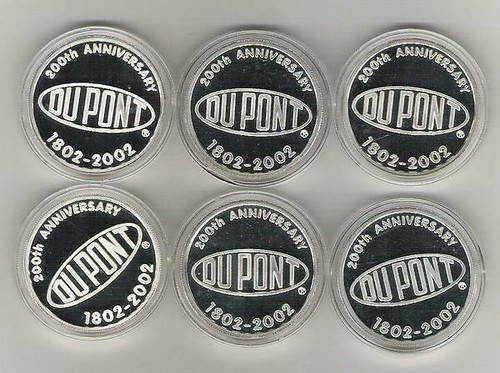
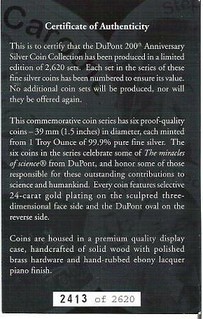 This is a limited edition (0128 of 2620) set of the DuPont 200th Anniversary Silver Coin Collection complete set.The commemorative coin
series has six proof-quality coins - 39mm (1.5") in diameter minted from one (1) Troy Ounce of 99.99% pure fine silver.They celebrate The
Miracles of Science (R) from the DuPont Corporation.Each coin features selective 24-carat gold plating on the sculpted three-dimensional face side of
the coin and the oval DuPont logo on the reverse side.
This is a limited edition (0128 of 2620) set of the DuPont 200th Anniversary Silver Coin Collection complete set.The commemorative coin
series has six proof-quality coins - 39mm (1.5") in diameter minted from one (1) Troy Ounce of 99.99% pure fine silver.They celebrate The
Miracles of Science (R) from the DuPont Corporation.Each coin features selective 24-carat gold plating on the sculpted three-dimensional face side of
the coin and the oval DuPont logo on the reverse side.
They come in a premium quality display case crafted of solid wood with polished brass hardware and hand-rubbed ebony lacquer piano finish.Also included is a large velvet pouch for the case stamped with the "DUPONT" name.
To read the complete item description, see:
DuPont 200th Anniversary Silver Coin Collection - $350 (Elsmere DE)
(http://delaware.craigslist.org/clt/5641115277.html)
To read the earlier E-Sylum articles, see:
NUMISMATICS OF THE DOW-DUPONT CHEMICAL COMPANIES
(www.coinbooks.org/esylum_v18n50a26.html)
NUMISMATICS OF THE DOW-DUPONT CHEMICAL COMPANIES
(www.coinbooks.org/esylum_v18n51a17.html)

Archives International Auctions, Part XXXIII
Chinese, Asian & Worldwide Banknotes,
and Chinese Scripophily
June 28, 2016
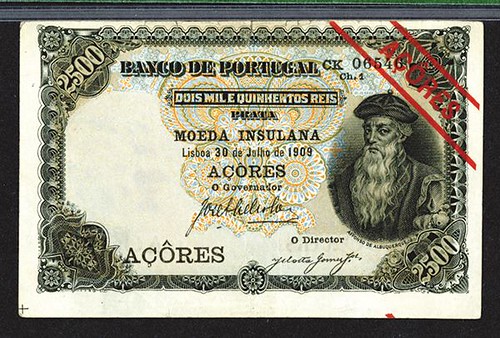
Click the links! Highlights include:
Lot 198: American-Oriental Banking Corporation, 1919 “Shanghai Branch”
Lot 245: Dah Chon Chang Money Exchange, ca.1920's "Shanghai"
Lot 315: Republik Indonesia Unlisted 1948 Issue Essay Specimen
Lot 451: Banco de Portugal - Azores. 1909 Issue
Lot 475: Imperial Do Brazil (1882) Issue Color Trial Essay Proof
Lot 700: Comite Bancario de Guatemala. 1899 Issue
Lot 889: Bank of Rhodesia & Nyasaland. 1960 Issue.
Lot 1006: Central Bank of Turkey. 1930 Law Issue
View the Virtual Catalog
Download the Catalog in PDF format
ARCHIVES INTERNATIONAL AUCTIONS, LLC
1580 Lemoine Avenue, Suite #7
Fort Lee, NJ 07024
Phone: 201-944-4800
Email: info@archivesinternational.com
WWW.ARCHIVESINTERNATIONAL.COM
GOLD HENRY CLAY U.S. MINT MEDAL OFFERED
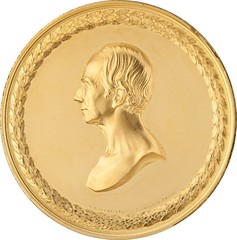
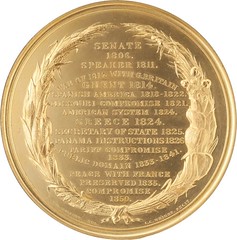
Henry Clay: Unique Solid Gold U.S. Mint Medal Presented to Him in 1852 by a Committee Led by President Millard Fillmore. This spectacular medal, 3 1/2" in diameter and containing nearly 30 ounces of pure California gold, was struck at the U.S. Mint in 1852 for presentation to the great politician and statesman Henry Clay. On the obverse is Clay's portrait, and on the reverse a list of his accomplishments.
Clay was very frail and had only months to live when a committee of prominent New Yorkers commissioned the medal, which was given to Clay in a ceremony held in his hotel rooms at the National Hotel in Washington, D.C. With President Fillmore and leading members of Congress in attendance, the chairman of the presenting committee Daniel Ullman declared:
"Sir: During the half century of your public life, your admiring countrymen and friends have accumulated around you many warm testimonials and enduring memorials of your great services to your country and mankind. To add to these another, is the purpose for which we now come to you.
"In the name of a large number of citizens of New York, we offer you this gold medal, and beg your acceptance of it, to be preserved in your family, and by their descendants, we hope, for ages.
"It has been our effort to make it valuable as a work of art... and as a perfect resemblance of your lineaments. We think this effort has been successful, and that no medal ever struck in this country surpasses its beauty, and that it is the best likeness of your features ever yet attempted by any art."
Clay, with only months to live, struggled to his feet to acknowledge this lavish gesture:
"This is among the most interesting and gratifying days of my life... You have come here to present me a beautiful and costly gold medal to commemorate my public life ... I shall fondly and gratefully cherish and preserve it whilst life endures, and transmit it to my descendants, under the hope that they will receive it and carefully guard it, with emotions of lively gratitude to my New York friends, as the proudest and richest legacy that I could leave them."
The medal was indeed carefully preserved by generations of Clay descendants, and was for many years exhibited on loan at Ashland, Clay's Kentucky home and now a museum. However, the decision was made to turn over that stewardship to a collector or institution which will value and preserve it as they have.
It is contained in an elegantly engraved and embossed silver case in the style of a giant pocket watch case, with hinged covers to protect each side. On one side of the case are a monument to Clay and the home at Ashland, and on the other a rendering of the U.S. Capitol building. The silver case is in the original velvet lined leather presentation box, and is accompanied by a beautiful hand-written presentation document signed by the members of the committee.
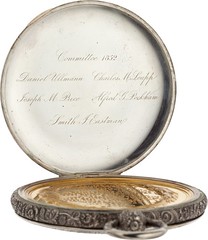
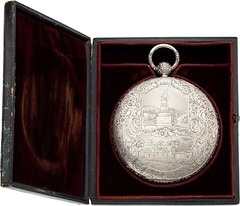
To read the complete lot description, see:
Henry Clay: Unique Solid Gold U.S. Mint Medal Presented to...
(http://historical.ha.com/itm/political/henry-clay-unique-solid-gold-us-mint-medal-presented-to-him-in-1852-by-a-committee-led-by-president-millard-fillmoreandlt-total-2-/p/6163-38001.s)
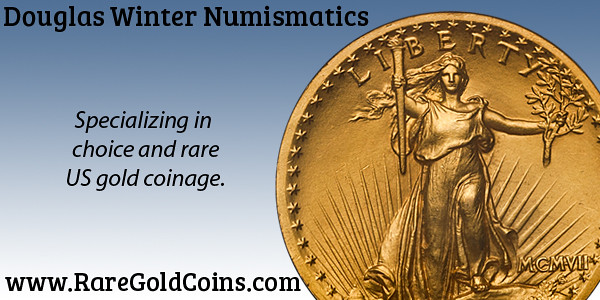
EARLIEST NUMISMATIC ALUMINUM AS A COMMON METAL?
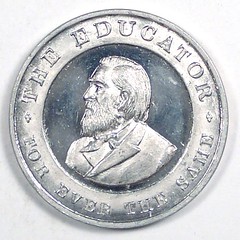
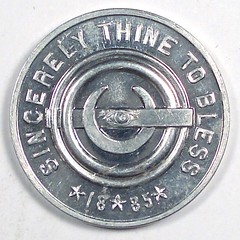
For many years aluminum was more valuable than gold. Several processes developed in the 1850s lowered its price, but when the pyramidal aluminum cap of the Washington Monument was produced in 1884, the cost of aluminum was still about $1 per ounce, similar to the cost of silver.
All of that changed in 1886 with the discovery of the Hall-Héroult process for production of aluminum, followed by the opening of the first large-scale production plant in 1888.
Prior to the 1880s, some of the rarest products of the US Mint were struck in aluminum, including some patterns and medals. By the time of the World's Columbian Exposition in 1893, aluminum was readily available, and many souvenir tokens were struck in the "new metal" and sold cheaply. In 1885, there were under 300 pounds of aluminum produced in the US. In 1893, there were over 300,000 pounds produced.
That raises the question: What was the earliest numismatic use of aluminum as a COMMON metal? For exonumia, it would have to be something produced in the 5 or so years leading up to the Columbian Exposition. For circulating coinage, I'm guessing a little bit later. Can an E-Sylum reader propose a good candidate in either category?
The question came to mind following my purchase of the attached 28.8 aluminum token/medal dated 1885. The Educator Food Company was a Boston-based company that sold crackers and was an early competitor to Nabisco. It was founded in 1885, so presumably this piece was produced somewhat later and isn't itself a candidate for "earliest". If not this, then what?
QUICK QUIZ: What U.S. numismatic personality is intimately connected with the Hall process? -Editor

ST. ELIGIUS BROTHERHOOD MEDAL
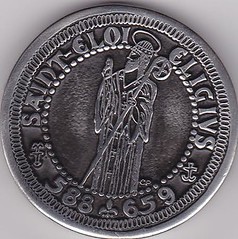 Claude Proulx, co-founder with Marcel Binette and Robert H. James of l’Ordre de la Confrérie des Numismates de Saint-Eloi (Order of
the St. Eligius Brotherhood of Numismatists), whose web site you featured in last week’s E-Sylum, designed this beautiful cast pewter medal of the
patron saint of numismatists.
Claude Proulx, co-founder with Marcel Binette and Robert H. James of l’Ordre de la Confrérie des Numismates de Saint-Eloi (Order of
the St. Eligius Brotherhood of Numismatists), whose web site you featured in last week’s E-Sylum, designed this beautiful cast pewter medal of the
patron saint of numismatists.
Eligius was the master of the royal mint at Limoges during the reigns of Kings Dagobert I and II. His name (spelled as Eligi) appears on
some of the coins.
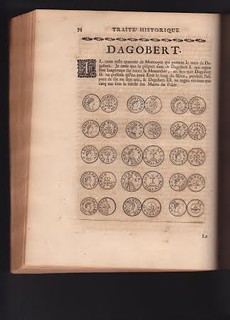 The medal design was taken from a coin plated in [François] Le Blanc’s Traité Historique des Monnoyes de France (Amsterdam,
Pieter Mortier, 1692)
The medal design was taken from a coin plated in [François] Le Blanc’s Traité Historique des Monnoyes de France (Amsterdam,
Pieter Mortier, 1692)
The Brotherhood maintains a library and a museum. Claude resides in Val-David, Québec. Since my wife’s name is Valerie, I teased
him about his town being named after us. Now we are both in our 80s and, I regret to say, I have not yet met Claude or visited his town.
Hopefully before long. He says that the cross country skiing is good there.
How many numismatists have their own medal on their book plates?
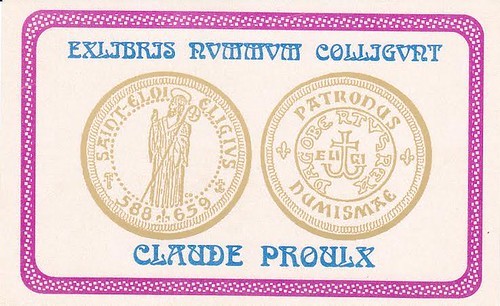
To read the earlier E-Sylum article, see:
FEATURED WEB SITE: KNIGHTS OF SAINT ELIGIUS
(www.coinbooks.org/esylum_v19n24a32.html)
THE BOOK BAZARRE
WAYNE'S NUMISMATIC DIARY: JUNE 19, 2016
We were back in Alexandria, VA Tuesday night for the June 2016 meeting of Nummis Nova, my Northern Virginia numismatic social group. Our host was Jon Radel, and he picked Virtue Feed & Grain, a new restaurant on Union Street.
I arrived about 5:45 and saw Dave Schenkman and Gene Brandenburg in the parking garage next door. Jon Radel and Eric Schena soon joined us. We had to wait outside because they wouldn't seat us until we had seven people. But it worked out - it was a wonderful night and we enjoyed watching the crowds.
As it happens, the restaurant is almost right across the street from Gene's old coin shop, where Eric worked for him back in the day. The building where our restaurant was had been a popular bookstore. Now everyone has the Library of Congress in their pocket, and the books are gone.
Robert Hoppensteadt lives nearby, and he arrived shortly before 6:30. It was time for our reservation so we asked for our table. Up the stairs we went and were seated at a long table with tall bar chairs. People lounged about on sofas with their drinks. It was a cozy-looking watering hole.
The name of the place was "Virtue Feed & Grain", prompting Wayne Herndon to ask beforehand "Are you sure this is a restaurant? From the name, it sounds like we should pick up some feed for our sheep, goats and cattle before we leave." From the restaurant's web site:
Virtue Feed & Grain takes its name from the building’s long-ago function as a feed house. Soaring open windows, exposed brick and giant iron girders frame the urban scene.
It resides in Wales Alley, an area shrouded with coincidental signs that the project was meant to be: A former Alexandria Mayor, John Fitzgerald, of Irish decent shared ownership of the alley and it was once home to a brewery that sold beer as early as 1786; the alley lends its name from Andrew Wales, the owner of this brewery.
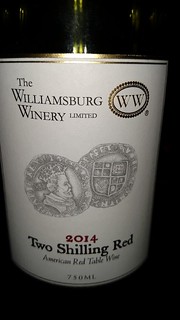 As we tool our seats Wayne Herndon, Steve Bishop and Joe Esposito arrived. Several regulars including Julian Liedman and Joe Levine were
either out of town of otherwise engaged, so it was a smaller group than normal.
As we tool our seats Wayne Herndon, Steve Bishop and Joe Esposito arrived. Several regulars including Julian Liedman and Joe Levine were
either out of town of otherwise engaged, so it was a smaller group than normal.
Joe Esposito brought two bottles of wine and the waiter brought glasses and uncorked them for us. The labels were appropriately
numismatic. Gene groused "What a cheapo brand of wine - only two shillings". It wasn't bad, though - I had a couple glasses.
Swiss Carnegie Hero Medal
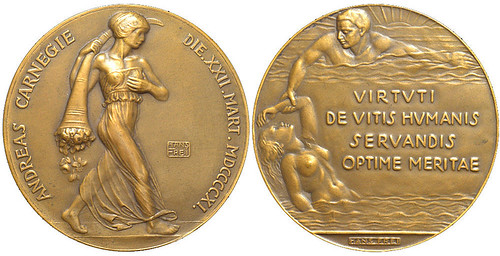
My first show-and-tell item was this Swiss Carnegie Hero Medal, a recent eBay purchase from a seller in Switzerland.
B. Max Mehl
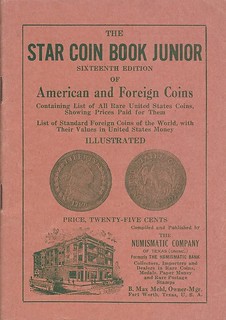
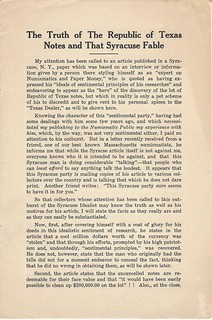
Since I still had room in my briefcase I brought a long a binder of material from my numismatic ephemera collection. This one was full of items related to Texas dealer B. Max Mehl.
Above is an example of Mehl's Star Coin Book Junior, a rare item. Next to it is a Mehl-published pamphlet produced in a feud with dealer A. Atlas Leve of Syracuse, NY. Below are images of both sides of a response produced by Leve, who refers to Meh as "Mox Nix Nil".
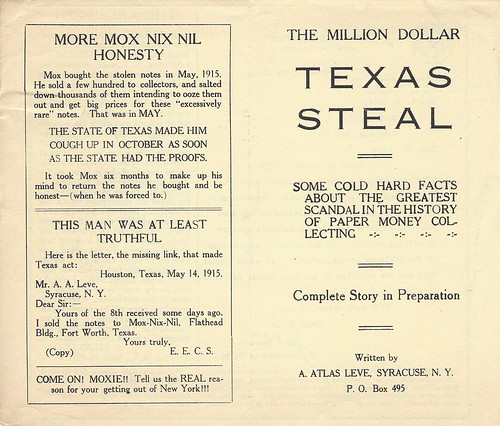
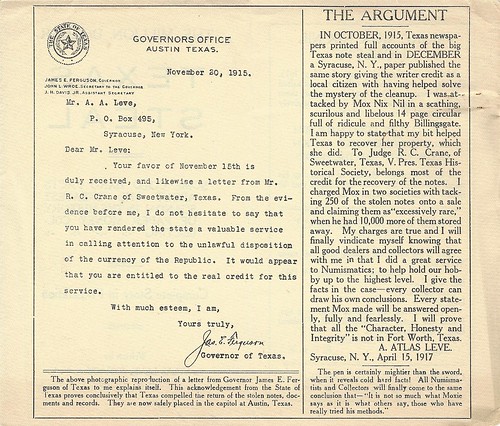
Yankees Baseball Gold Charms
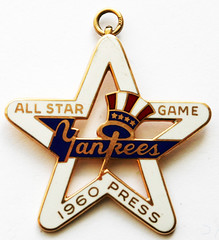
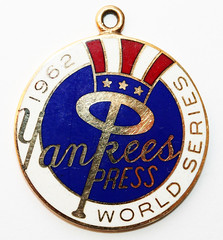
Dave Schenkman had these two 14kt gold charms from the 1960 Yankees All Star Game, and 1962 Yankees World Series.
1775 British Half Penny Full Reverse Brockage
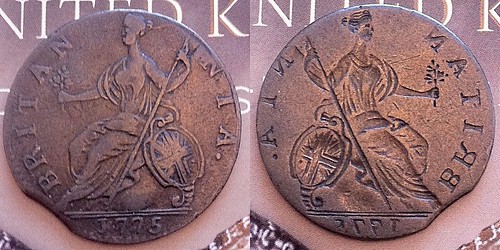
Steve Bishop had a number of nice items including more Russian copper and some pretty Morgan dollars. But my favorite was this 1775 British Half Penny with a full reverse brockage error. Neat item.
American Hoards
Eric was sitting right across from me, so we got to have some good conversations. Eric had the interesting side. He writes:
At the dinner, Wayne Homren and I had a great discussion regarding undiscovered finds and if any are still out there in the wild awaiting discovery. I can recall three such discoveries for which I have some knowledge.
Back in the 1960s, there were plans to put in a parking lot in the old part of Winchester. At the site was a house called the Conrad House that had to be razed. In the process of destruction, a hoard of local Civil War era notes all in low grade was recovered, including a number of Corporation of Winchester scrip and $1 notes from the Bank of Winchester. The hoard has long since been dispersed to the four winds but the notes regularly turn up. It can be reasonably safe to assume that if you run into a tattered Bank of Winchester $1 it came from that hoard.
A similar hoard of scrip turned up in 2004 or so in an old house in Luray that included some real rarities but again, they were mostly low grade notes from the central Shenandoah Valley area. I managed to get a good sampling of these notes for my collection.
The one hoard we talked about was one that Nummis Nova's own Gene Brandenburg had the pleasure of sorting out. Back sometime in the 1980s, Gene had purchased a large group of Confederate currency, almost all of which were in smaller denominations. There was a huge number of crisp 1864 notes, namely $1 T71, $2 T70, and $5 T69 notes, some of which were in serial number order.
I don't fully recall the nature of how the hoard came to be, but from my recollection they all came from a long abandoned safety deposit box at the Burke & Herbert Bank just two blocks from where we were dining - coincidentally the only pre-Civil War Virginia bank still in business.
The notes looked like they were fresh from Keatinge & Ball and deposited the next day with bright white paper and brilliant colors. I was a teen at the time and bought a small group of them which fortunately I still have in my collection. I am tempted to get them certified.
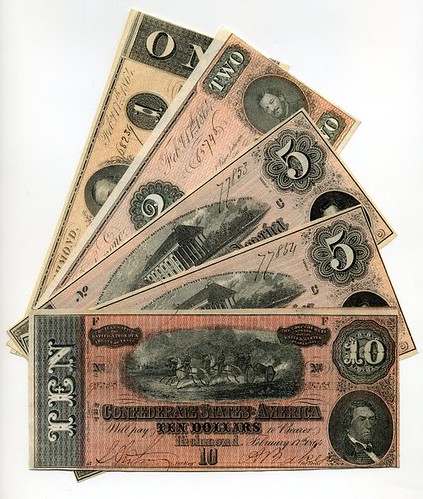
Before everyone left I hit them up for donations for the next Annandale coin show kids event, and Jon and I discussed meeting at Wayne Herndon's warehouse some Saturday to organize our material.
It was another great night of numismatic fellowship. As it happened, it was also the last day of school for our kids. As my wife and reviewed plans we ended up deciding we'd better take our family vacation right away or we might not be able to squeeze it in between my work trips and her friends' visits. So we quickly pulled together some reservations and are now out of town for the rest of the week. Luckily I was still able to pull this issue together.
'Til next time!

SILVER 1904 CARNEGIE HERO MEDAL SOLD
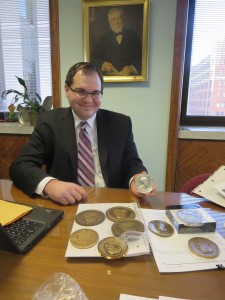 Ivah J. Coles of East St. Louis, Ill., gave his life for a friend on June 8, 1904, within two months of the Hero Fund’s founding in April.
He was posthumously awarded a silver Carnegie Medal, which was given to his mother.
Ivah J. Coles of East St. Louis, Ill., gave his life for a friend on June 8, 1904, within two months of the Hero Fund’s founding in April.
He was posthumously awarded a silver Carnegie Medal, which was given to his mother.
The medal surfaced this spring when it was put up for sale on eBay by a jeweler from O’Fallon, Mo., who acquired it through someone wanting to sell scrap silver. Matthew Campbell of Washington, Pa., a member of the Pennsylvania Association of Numismatists (PAN), put in the winning bid; it turns out that the Hero Fund was the only other bidder during the anonymous proceedings. The Hero Fund attempts to re-acquire medals when located on the open market, feeling that they are not to be traded like commodities but to be held by the awardees or their families for posterity, or kept in a manner befitting their dignity, such as by a museum or historical society.
Campbell had never heard of the Hero Fund, but the medal immediately piqued his interest, as he recognized its quality. An alumnus of Carnegie Mellon University, he visited the Hero Fund’s offices in mid-April to learn more about the Coles case and do some research for an article he is considering for The Clarion, PAN’s journal. “In reading Carnegie’s autobiography,” Campbell said, “I was taken with this line, ‘The heroes of the barbarian past wounded or killed their fellows; the heroes of our civilized day serve or save theirs.’ I plan on writing about the organization’s mission.”
The Hero Fund provided Campbell with the details of Coles’s heroic act. Coles, 21, a bricklayer, and a friend, Richard E. Crumwell, 20, a carpenter, were on a swimming outing at a reservoir in Gillespie, Ill. While attempting to climb up the steep, high bank, Crumwell fell back into the water and began to sink. From the bank, Coles waded into the water toward Crumwell but sank within eight feet of him. The men’s bodies were found in water 10 to 12 feet deep; the Commission’s report indicated that they were victims of cramps, caused by the chilliness of the water.
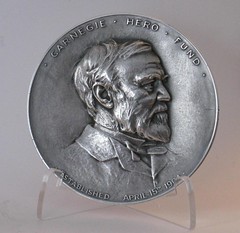
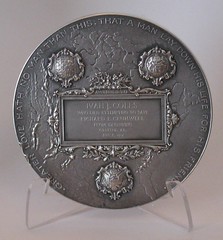
To read the complete article, see:
Medal awarded posthumously bought at auction by collector
(www.carnegiehero.org/auction/)
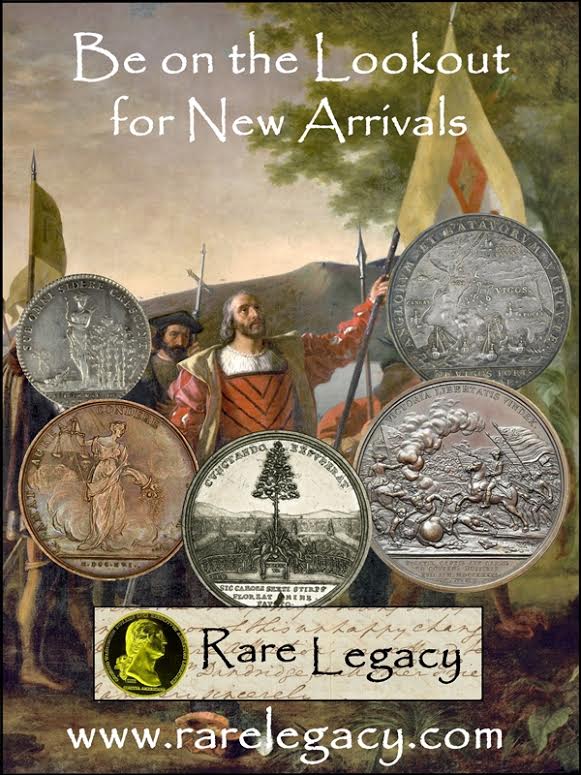
LENBOROUGH ANGLO SAXON COIN HOARD VALUED
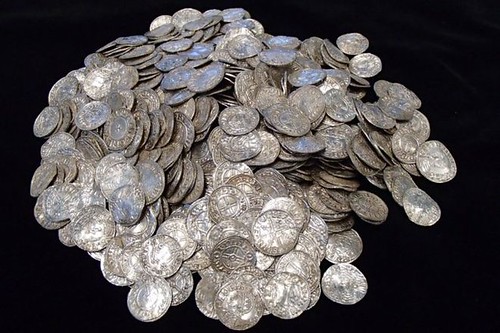
A metal detectorist is to get a share of £1.35m after finding a hoard of 5,251 Anglo Saxon silver coins.
Paul Coleman found the coins in Lenborough, Buckinghamshire, in 2014.
The Treasure Valuation Committee has ruled on their worth and Mr Coleman will split the money with the land owner.
The Buckinghamshire County Museum had already launched a fundraising campaign ahead of the valuation, with the aim of buying the hoard.
The coins, which were found buried and wrapped in a sheet in the village near Buckingham, depict the heads of King Ethelred the Unready and King Canute and came from 40 different mints around England.
Mr Coleman, who lives in Southampton and is a member of the Weekend Wanderers Detecting Club, said he was accepting the valuation and wanted the hoard to go to the Buckinghamshire County Museum.
He said: "It's open to wild speculation and it has been suggested to me by some experts that was worth £2-3m. "We believe it's worth more than £1.35m, but we can't really say by how much.
"It would probably be very difficult to get the value increased anyway and we would rather see the collection go to a museum, rather than separated and sold to collectors around the world."
The coins are being looked after by the British Museum, which said it was supporting the local museum's bid to buy them.
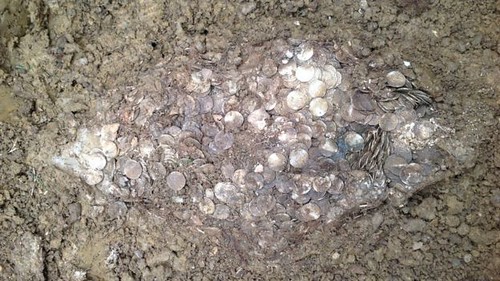
The hoard as found
To read the complete article, see:
Lenborough Anglo Saxon coin hoard valued at £1.35m
(www.bbc.com/news/uk-england-beds-bucks-herts-36475046)
To read the earlier E-Sylum article, see:
LARGE HOARD OF ANGLO SAXON COINS DISCOVERED
(www.coinbooks.org/esylum_v18n07a22.html)
EMPEROR CONSTANTIUS II MEDALLION USED ON BELT
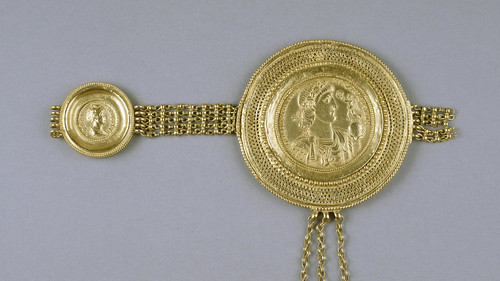
Though he lived nearly 17 centuries ago, it's easy to imagine the man who wore the fancy gold belt strolling today through the halls of Congress or, possibly, the Department of Defense. He might even have deliberately tossed his jacket back over his shoulders to let the belt's shiny surface reflect the sun.
The visible sign of his favored status — a big, whomping honorary medallion handed out by fourth-century Roman Emperor Constantius II — would have been as conspicuous as the stars on any general's shoulder. It's an impression heightened by a second decoration, an old coin from the second century bearing the image of the Roman Empress Faustina.
"This was serious name-dropping," says Lynley Anne Herbert, who curated a new exhibit on medieval recycling that opens June 25 at the Walters Art Museum.
"He was wearing the emperor's image around town. He was all blinged out, and he was completely wanting everyone to recognize who he was connected to."
The belt fragment is just one of about two dozen objects on display in a small but charming exhibit running through the summer called "Waste Not: The Art of Medieval Recycling."
Nearly every artwork on view is an example of repurposing, from a 13th-century Limoges cross that used melted Roman glass to achieve its intense blue enamel, to the makeover given to a massive stone head of Hercules designed to transform the Greek hero into a Roman Catholic saint.
There's even a 12th-century fragment from the Talmud used to bind a 15th-century copy of "Aesop's Fables" — an example in which the covering became far more valuable than the manuscript it was intended to protect.
"Today we think we're really trendy because we're recycling to save the planet," said Herbert, the Walters' assistant curator of rare books and manuscripts. "Well, people have been recycling for thousands of years. They just didn't have little blue bins outside their back doors."
To read the complete article, see:
Exhibit on medieval recycling opens at
the Walters Art Museum (www.baltimoresun.com/entertainment/arts/bs-ae-walters-recycle-20160618-story.html)
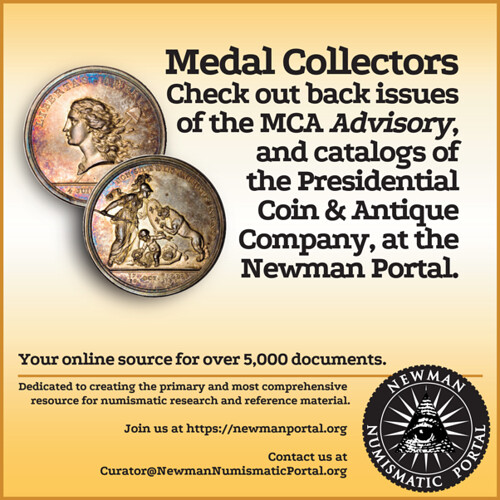
PARIS MINT TO MAKE COINS FOR SAUDI ARABIA
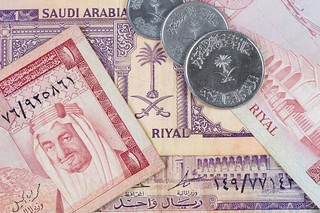 Saudi Arabia is in the process of designing new coins. The coins are being designed by the Monnaie de Paris company at its manufacturing
facility in Pessac.
Saudi Arabia is in the process of designing new coins. The coins are being designed by the Monnaie de Paris company at its manufacturing
facility in Pessac.
The factory will produce 300 million pieces in seven categories. The new coins are expected to enter production between 2016 and 2017.
The contract is worth 15 million euros and is the result of three years of negotiations. The president of the company said the Saudi coin deal represented one year of export to other clients which is 30 percent of the company's activities.
The deal has been under negotiation since 2013, and the majority of negotiations dealt with the coin's design. Coin design experts from the company, who designed many currencies for other countries, such as Uruguay and Thailand, were approved for the job.
During the past five years, the coin production factory has attracted contracts for 1.3 billion for the French state in comparison with 700 million during the past two years. This is a low number in comparison with countries such as Germany.
To read the complete article, see:
French firm to design, mint new Saudi coins
(http://www.zawya.com/mena/en/story/ZAWYA20160613173735/)
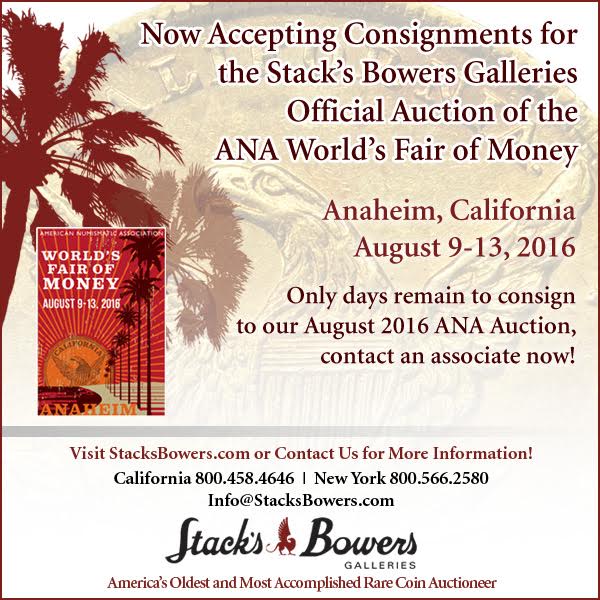
VIDEO DISCUSSES COUNTERFEIT DETERRENCE SYSTEM
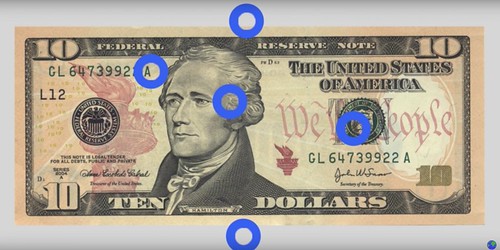
You shouldn't ever try to copy money.
Also: You physically can't do it.
In a video from the series That Wikipedia List we first spotted on Gizmodo, Wendover Productions explains that currency has a highly secretive, built-in system that alerts technology like photocopiers and Photoshop to stop working on it. Because counterfeiting is highly illegal, a photocopier will refuse to copy a bill, and Photoshop will reject the image.
The pattern depicted in blue dots in the screengrab above is called the EURion Constellation, and was a security measure found in multiple international currencies. However, now there's a new counterfeit-stopper on the block ... and no one knows much about it.
"More recently, copiers have moved to a system called the Counterfeit Deterrence System, which is incredibly secretive and effective," the video says. "Nobody is really sure how it works. And while the EURion Constellation might be part of it, these security features make it even more difficult to copy bank notes."
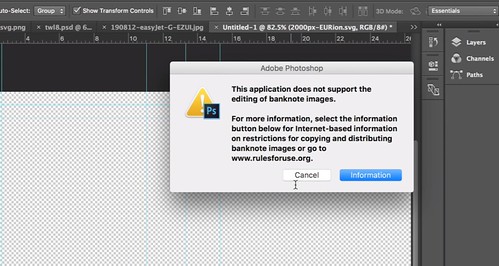
To read the complete article, see:
You physically cannot photocopy or Photoshop money
thanks to an 'incredibly secretive and effective' security system
(www.businessinsider.com/you-cannot-photocopy-or-photoshop-money-2016-6)

WAS CHURCHILL BANKNOTE MODELED ON KARSH PHOTO?
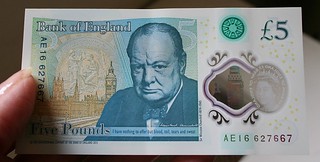
Leon Saryan writes:
I recently returned from a trip to England which included visits to the British Museum, the Tower of London, and Blenheim Palace. So I was more than interested to read that I just missed the introduction, at Blenheim Palace, of the new 5 pound polymer note bearing the portrait of Sir Winston Churchill.
The portrait of Churchill on the note bears a remarkable resemblance to the photograph of Churchill taken by the Canadian Armenian photographer Yousuf Karsh on Dec. 30, 1941. Can anyone confirm that the note was modeled on Karsh's photograph?
To read the earlier E-Sylum article, see:
BANK OF ENGLAND UNVEILS NEW CHURCHILL NOTE
(www.coinbooks.org/esylum_v19n24a27.html)
QUEEN HONORS POLYMER BANKNOTE PIONEER DAVID SOLOMON
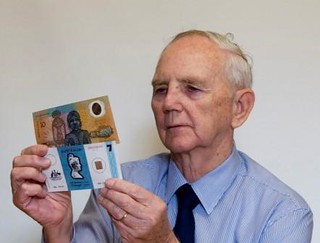 The development of the polymer banknote was the result of the Reserve Bank of Australia (RBA) approaching senior scientists to design a
more secure note following the forgery of A$800,000 worth of A$10 notes in 1966.
The development of the polymer banknote was the result of the Reserve Bank of Australia (RBA) approaching senior scientists to design a
more secure note following the forgery of A$800,000 worth of A$10 notes in 1966.
In 1968 Solomon was working as a chemist for Australia’s Commonwealth Scientific Industrial Research Organisation’s (CSIRO). Initially, polymers were not seen as the solution, but after some hesitation, largely prompted by Solomon’s junior status, he was invited to join the team.
According to Solomon, it was a lengthy and frustrating process. “This was largely due the RBA being a conservative organisation, and one that could not make the shift from being an entity that imported paper and inks for banknotes to one that exports.”
“The RBA’s senior technical people also had difficulty translating the technology into practice. Their focus was on accurate printing, which was not going to address the security issue.”
With no funding, and still having to carry out his normal duties, Solomon persevered with developing the plastic film. It wasn’t until 1983, that the RBA’s new Governor, Bob Johnston, made the decision to introduce Australia’s first polymer banknote.
Solomon continued: “Production was carried out in secret to prove we could do it.”
The development work was a success and in 1988 Australia’s first plastic note was currency – the bicentennial A$10 note.”
Solomon warned the RBA that whilst polymer notes are more difficult to counterfeit, constant vigilance would be required to keep one step ahead of the forgers, and the bank now employs several chemical engineers and scientists in its plant in Melbourne.
Solomon went on to say, “Over 30 countries have now adopted polymer banknotes, and the UK will issue its first plastic notes in September.”
Solomon has a strong industry background and is an advocate for bringing academia and business closer together. His pioneering work prompted many chemical engineering departments around the world to embrace polymer studies.
Solomon’s advice to emerging chemical engineers is: “Always do science well, and take the project as far as you need to convince the customer it is viable.”
To read the complete article, see:
Queen honours
plastic banknote pioneer
(www.thechemicalengineer.com/latest%20news/2016/june/queen-birthday-honour-for-plastic-banknote-pioneer.aspx)
To read the earlier E-Sylum article, see:
ARTICLE PROFILES POLYMER BANKNOTE INVENTOR DAVID SOLOMON
(www.coinbooks.org/esylum_v19n24a28.html)
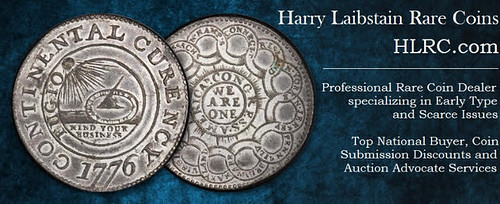
SWISS 1,000-FRANC NOTE HERE TO STAY
Regarding earlier articles about the planned elimination of some large-denomination banknotes, Ron Haller-Williams writes:
The Swiss National Bank (SNB) does NOT concur with the ECB (European Central Bank), and intends keeping its SFr 1000 bills, today worth about USD $1,000 or GBP £700.
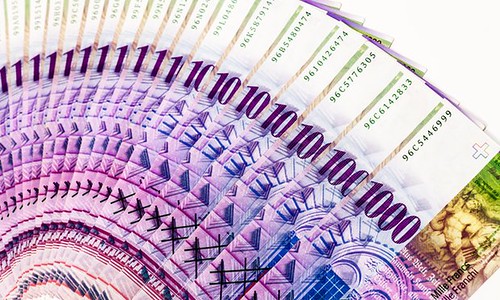
One of the world’s biggest banknotes – Switzerland’s SFr1,000 bill – is here to stay, the central bank has said, despite European Union moves to end its highest denomination note to keep it out of the hands of militants.
European finance ministers last week called on the European Central Bank to look at ways of tightening security around the use of the €500 bill, over fears such a high-value note made it easier for terrorists and criminals to both launder and carry cash.
But the Swiss National Bank (SNB) said there were no plans to follow Europe’s lead over its SFr1,000 bill, worth more than £700 or $1,014. The biggest US denomination note is the $100 bill.
The spokesman said the bank believed that the size of a banknote had no impact on efforts to combat crime.
Few Swiss have seen one of the violet SFr1,000, the latest version of which features the portrait of 19th-century cultural historian Jacob Burckhardt.
According to SNB figures, SFr38.3bn of them were in circulation in 2014, just under 10% of Swiss banknotes but 61% of the total value of cash in paper form.
“The high proportion of large denominations indicates that banknotes are used not only as a means of payment but also to a considerable degree as a store of value,” the SNB website explained.
One Swiss banking source said they had seen recent signs of people hoarding SFr1,000 notes as a reaction to negative Swiss interest rates, which make banks and large institutional investors pay for some deposits.
To read the complete article, see:
Swiss 1,000-franc note
here to stay, says national bank (www.theguardian.com/business/2016/feb/16/1000-swiss-franc-note-here-to-stay-swiss-national-bank)
To read the earlier E-Sylum article, see:
NOTES FROM E-SYLUM READERS: MAY 15, 2016 : Whittling Away at Denominations Large
and Small (www.coinbooks.org/esylum_v19n20a12.html)
TAIWAN AUCTIONING SPECIAL SERIAL NUMBER BANKNOTES
Taiwan's central bank said Friday it will auction off Taiwan dollar notes with special serial numbers starting on June 30 to boost government revenues.
People in Taiwan tend to favor banknotes with special serial numbers and are willing to pay large sums for them, as has been seen in seven similar auctions held by the central bank in the past four years.
Among the most coveted notes are those with serial numbers with one or more 8s, such as "000008" and "000088," because the number eight sounds like the word for "making a fortune" in Mandarin.
The central bank said it has entrusted state-owned Bank of Taiwan, the country's largest lender, to conduct the auction online, which will start at 10 a.m. on June 30 and run through 10 a.m. on July 5.
In addition to the banknotes with a serial number containing one or more 8s, Shih said the bills to be put up for auction will have a serial number composed of consecutive numbers, such as 123456 or 654321, or one with the same numbers, such as 111111 or 222222.
The other group will feature bills where the first digit in the serial number is a number and the other digits are zeros, such as "100000" and "200000," Shih said.
The four groups will generate a total of 6,417 banknotes to be auctioned after taking into account two English letters ahead of the serial numbers and another two English letters right after the serial number, Shih said.
The banknotes will be further divided into 127 sub-groups for the online auction.
Based on the composition of each sub-group of banknotes and face value, the floor prices in the auction will range between NT$1,000 (US$30.86) and NT$56,000. The total floor price will be NT$4.24 million.
To read the complete article, see:
Central bank to auction banknotes with special serial numbers
(http://focustaiwan.tw/news/aeco/201606170022.aspx)
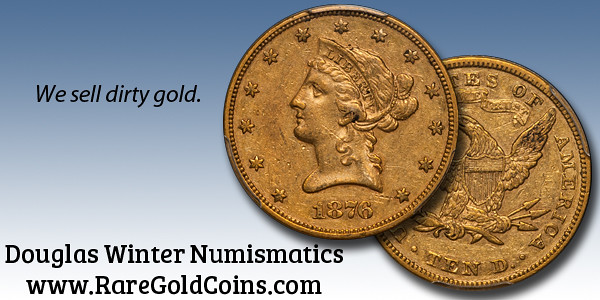
FEATURED WEB PAGE: BELGIAN BANKNOTES AND COINS
This week's Featured Web Page is on the history of Belgian banknotes and coins, from the The Museum of the National Bank of Belgium.The history of the Belgian franc extended over 170 years. The national currency unit was created by a law passed in 1832, two years after independence. Much of that history was also actually written by the National Bank, which has been printing Belgian banknotes since 1850 and became the "guardian of the currency" from the date of its establishment.
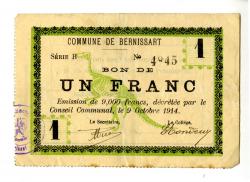
https://www.nbb.be/en/notes-and-coins/belgian-
currency/brief-history-belgian-banknotes-and-coins

